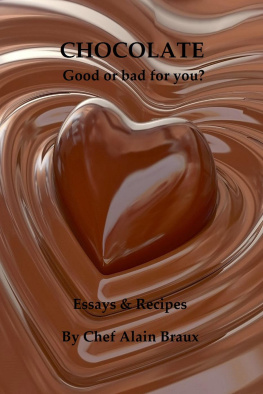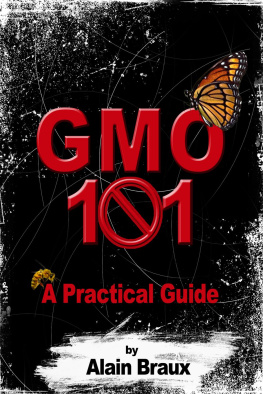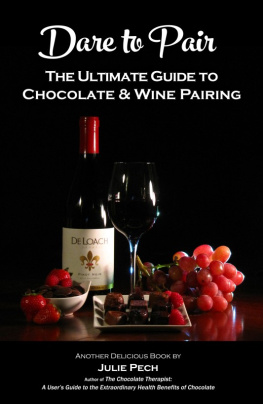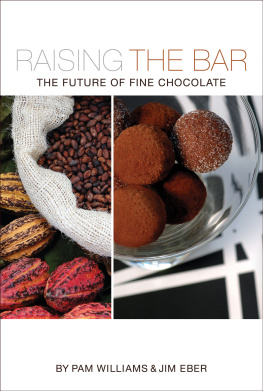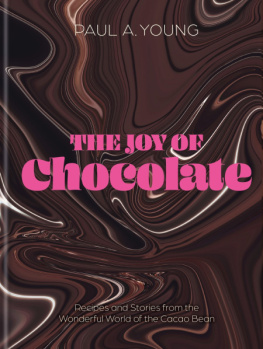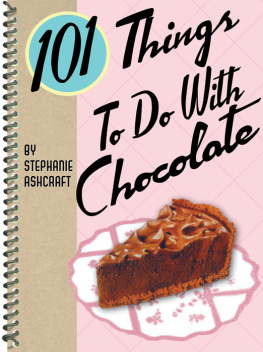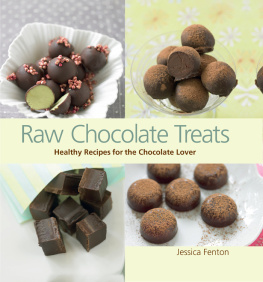
Copyright 2015 by Alain Braux International Publishing, LLC.
All rights reserved. No part of this book may be reproduced or transmitted in any form or by any means, electronic or mechanical, including photocopying, recording, or by any form of information storage and retrieval system, without the written permission of the author, except where permitted by law.
Chocolate Good or Bad for You? is a trademark of Alain Braux. Alain Braux International Publishing, LLC.
Disclaimer : This book has been written as an educational tool only. It is not a substitute for the informed medical recommendations of your personal physician or other qualified healthcare provider. The information within these pages is designed to help you learn about and understand your current health condition. My hope is that this book will allow you to have a better dialogue with your healthcare providers and make your life easier.
The publisher and the author of this book are not responsible for any products and services mentioned or referred to in this book, and disclaim any liability regarding the information offered in this book. They also disclaim any responsibility for any damage, loss, or expense to property arising out of, or relating to, the text in this book. If you have any doubts as to the validity of the information given, please do not purchase this book. Thank you for your understanding.
Before starting a new diet plan or lifestyle change, or beginning or modifying an exercise program, please check with your personal physician to make sure that the changes you plan to make are right for you. Sincerely, Chef Alain Braux.
For information regarding this and other Alain Braux International Publishing, LLC books and speaking engagements, please contact Chef Alain Braux through www.AlainBraux.com or at alainbraux@gmail.com .
Manufactured in the United States of America. (July 2015)
Note
If you liked this book and think its worthy of a 4 or 5 star review - please go to my Amazon.com book link and let other people know. If you think its not worth that then please let Alain know by sending an email to
Hello! If you liked this essay and recipes, make sure to all my other essays and books on all Ebooks platforms or on http://www.alainbraux.com/category/mybooks
Table of Contents
Chocolate - Good or Bad for You?

Dark Chocolate for Your Health - Cocoa Powder and Cocoa Butter

My Early Life as a Chocolatier
A long time ago, long before I became a nutrition therapist, in the land of magic chocolates, I was a chocolatier (a fine chocolate bonbons maker) at one of the most prestigious Patisserie-Chocolaterie in Brussels, Belgium: Wittamer. If you are drooling after reading this article, feel free to get their fine chocolate delicacies in New York City as well.
Little did I know at the time of the numerous health benefits of dark chocolate . In an interesting twist of fate, it turned out that the product I had been working with for years was good for you as well. The Europeans have appreciated its flavor and benefits without knowing why. All they knew was that it tasted great and that it could be appreciated under many, many delicious forms and flavors, but I suspect that health was the least of their concerns, at the time. First, let me give you a little explanation about what is chocolate and the different kinds available.

Raw Cocoa Powder
A ll chocolate comes from cacao, or cocoa, as it is more commonly known. Cacao is the seed (nut) of a fruit of an Amazonian tree that was brought to Central America during or before the time of the Olmecs. Cacao Beans were so revered by the Mayans and Aztecs that they used them as trading money!
Raw cocoa powder is created by cold-pressing cocoa nibs into a mass (cake) separating the cocoa butter from the protein and fiber. It is then ground finely to produce a full, antioxidant-rich cocoa powder. When raw, it is one of natures most fantastic super foods due to its mineral content and wide array of unique and varied properties.
Cocoa powder contains several minerals including calcium, copper, magnesium, phosphorus, potassium, sodium and zinc. All of these minerals are found in greater quantities in cocoa powder than either cocoa butter or cocoa liquor. Raw cocoa powder also contain up to 230 mg of caffeine and 2057 mg of theobromine per 100g.
Cocoa powder is rich in a type of flavonoids called flavanols. Flavanols, which are also found in some fruits and vegetables, are linked to certain health benefits linked to coronary heart disease and stroke. It is thought that flavanols may take part in mechanisms such as the creation of nitric oxide, antioxidants, anti-inflammatory, and antiplatelet effects all beneficial to your heart and blood vessels.
So, no need for you to waste your money on nitric oxide (NO) supplements. Enjoy your dark chocolate instead.
Flavanols may also influence endothelial function (they form the thin layer of cells that lines the interior surface of blood vessels and lymphatic vessels), lipid levels, blood pressure and insulin resistance. The final amount of flavanols depends on the amount of processing and manufacturing the cocoa powder undergoes, but raw cocoa powder can contain up to 10% its weight in flavanols.
Dutch-Processed Cocoa Powder
P ure cocoa powder has a bitter taste and is acidic, which may complicate things when you are trying to bake with it. In the 19th century, Dutch chocolate manufacturers discovered that they could treat cocoa powder with alkaline salts to reduce the bitter taste and give that appetizing dark chocolate color appreciated in your cakes and created a process known as the Dutching process.
Unfortunately, the alkalinizing process destroys the powerful antioxidants called flavanols found in natural cocoa. Thus Dutch cocoa provides less antioxidant than unprocessed cocoa. If that is what you are looking for, look for Dutch process or alkali added or European style when you are shopping. Otherwise, look for natural cocoa powder.

Cocoa Butter
C ocoa butter, also called theobroma oil, is the natural fat found in cocoa beans. It contains antioxidants that prevent rancidity and allow a long storage life. All the people screaming on the rooftops that all fats are bad for you will be disappointed with cocoa butter. The truth is that the fat found in cocoa butter is a healthy fat! It consists of 34% stearic acid, 34% oleic acid, 25% palmitic acid, and 7% other fatty acids.
- Stearic acid . In epidemiologic and clinical studies, stearic acid was shown to lower LDL (bad) cholesterol in comparison with other saturated fatty acids. This shows that stearic acid is healthier than other saturated fatty acids.
- Oleic acid , a heart-healthy as a monounsaturated omega-9 fatty acid, the same fat found in olive oil and is known to raise the good cholesterol called HDL (High Density Lipid) levels. So much for all fats being bad for you, eh?
Next page
